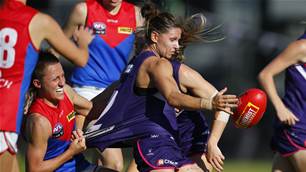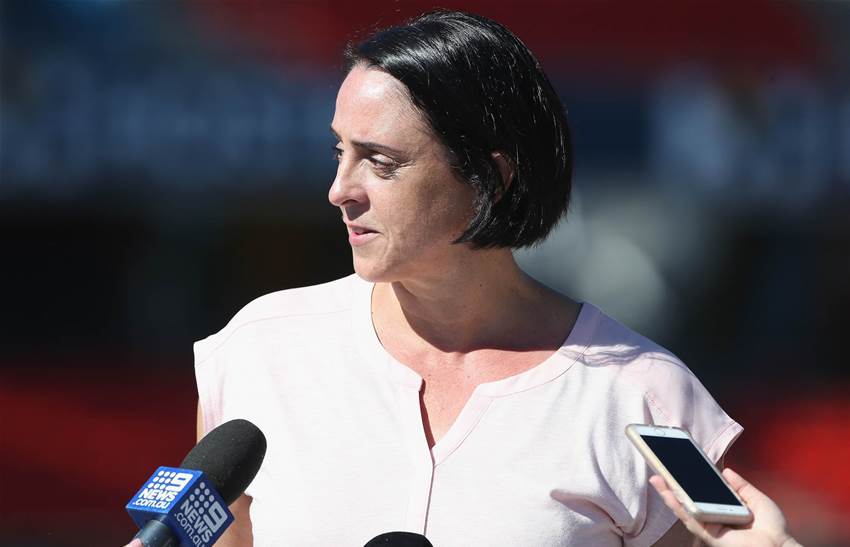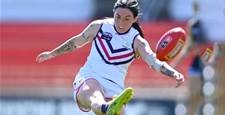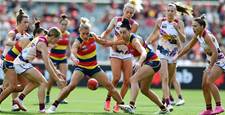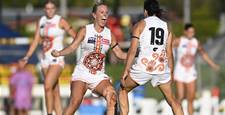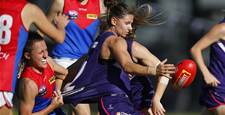Nicole Livingstone added another notch to her belt in late 2017, becoming the AFLs Head of Women’s Football as well as managing the AFL Women’s competition.
That in itself is a notable achievement, but what Livingstone seems to be remarkably adept at, is reinvention.
As an elite swimmer, Australian record holder, Olympian, Commonwealth and Olympic medalist, board member, OAM recipient, radio and TV presenter, not to mention a mother of three, Livingstone is a role model for athletes post their sporting careers.
Chatting to Paul Roos on “The Coach”, Livingstone reflected on her multiple careers and the lessons she has gained in life.
Swimming has brought her many things and perhaps was the catalyst for where she is now but in some respects, Livingstone doesn’t see it as a sport.
“I see it as a survival skill that kids have to learn,” she said.
Swimming, and sport in general, should also be about fun, and now Livingstone believes it has gone full circle.
“I remember one coach keeping it fun and intrinsic. We’ve gone from potentially overcoaching and over instructing professional athletes and kids, now trying to get them to remember to have fun.”
In fact, if you glance at Livingstone’s life, swimming still seems to be a major part of it, in the friends she has and the experiences she gained along the way, to the way she sees the future, her drive and opportunities for improvement.
“I can remember countless times that I would stay back after we’d finished training to work on small things like starts, turns, finishes, small technical things that I needed to work on.
“What have you done today that will make yourself improve and make yourself potentially better than your opposition?”
1996 was Livingstone’s last Olympics and a key turning point in her life to embark on new pathways.
“I actually made the decision before I went to the Olympic Games that I was going to retire after.
“If I had the time again I probably wouldn’t have done that. In my head I was going ‘This is the last time I’m putting a race suit on. This is the last time I’m going to a marshalling room, last time I’m going to race the 200 backstroke’, so it probably put a bit of a wrong thought process.
“I had made the decision that I was retiring because I was transitioning into a new career. I had that set up before I went to the Olympic Games so I knew that’s was where I wanted to be and what I wanted to do so that gave me a bit of comfort that that was coming.
That experience for Livingstone is one that every athlete will face. When is the right time? What’s next? And in particular, who am I after this?
“The full-time athlete scenario is so insular and it doesn’t set you up for success in life,” Livingstone said.
“Full-time athletes these days have someone for everything, that can do things for you and they don’t get that grasp on life.
“We’re getting better at it. We’re getting better at advising athletes to have the dual thought process. But we still have a group of coaches that see anything other than athletic performance, training, game time as detracting from the end result as opposed to looking at the overall well being of an athlete and what they might be in 20 years time.”
This is where Livingstone advises a holistic approach to being an athlete and certainly for how they can transition to their next career or next phase.
“I think for me the biggest lesson is not to be afraid to reinvent yourself and to plan what that reinvention looks like,” Livingstone said.
“If you look at my life, I’ve always tried to not just look ‘the grass is greener ahead of me’ but I’ve always tried to look at what does the future hold for me. What do I need to do either from a relearning point of view or opportunity point of view to actually reinvent myself?
“So I’ve had some really key moments of doing a uey and going in a different direction. Don’t be afraid to do it and don’t be afraid to upskill yourself whilst you’re in your current environment."
For the full interview:
Related Articles
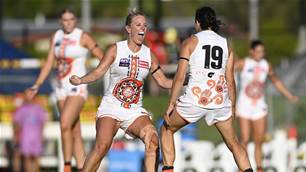
Updated: AFLW Round 2 preview and schedule
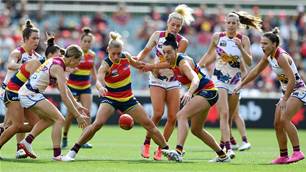
AFLW full team rosters for 2022 season
